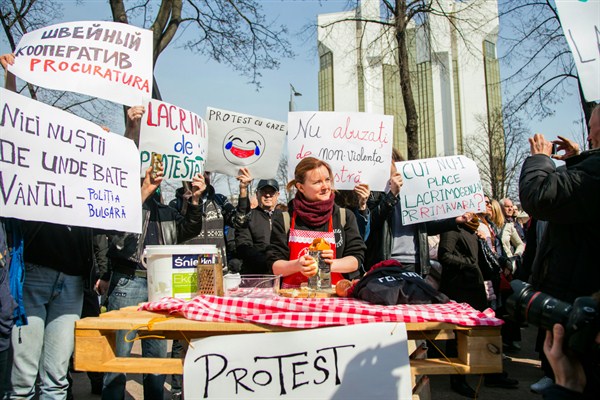Parliamentary elections were held in Moldova in late February, but the country has yet to form a government. The opposition Socialist Party, which favors closer ties with Russia, gained 35 out of 101 seats in Parliament, while the ruling Democratic Party took 30 seats. A pro-European Union opposition coalition called the ACUM campaigned on an anti-corruption platform and came in third, with 26 seats. Any two of these three parties could form a governing coalition, but wide gaps in their platforms have so far precluded any agreements, says Denis Cenusa, a researcher at Justus Liebig University in Giessen, Germany. In an email interview with WPR, he discusses the consequences of the country’s prolonged political stalemate.
World Politics Review: What were the main issues in Moldova’s parliamentary elections held earlier this year?
Denis Cenusa: The major political competitors in the election broadly focused on two different sets of topics. The Democratic Party, which is chaired by oligarch Vladimir Plahotniuc, focused on increasing social welfare payments and expanding road infrastructure projects in rural areas. Its focus was broadly echoed by the Socialist Party, which championed the need for more equitable social policies concerning public sector wages and pensions. However, both parties failed to explain where the money for an admittedly necessary but extremely costly social program would come from, as Moldova suffers from chronic budget deficits and sluggish economic growth. As it stands, the government’s ability to pay out public benefits depends on foreign aid, which is estimated to account for up to 15 percent of GDP.

